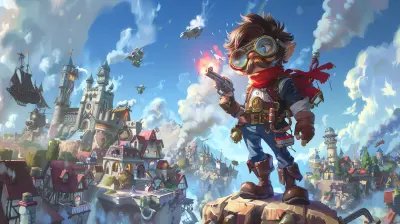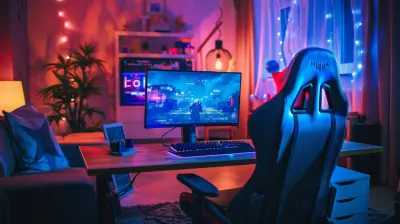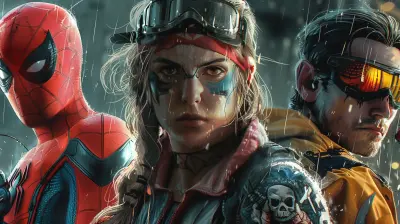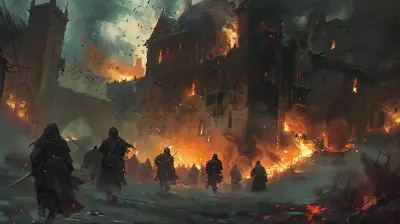How Cultural Diversity is Changing Video Game Characters
3 June 2025
Video games have come a long way since the early days of pixelated plumbers and blocky sprites. Back then, it didn’t matter much if every character looked like they were cut from the same cookie-cutter mold. But as the gaming industry has grown into a global powerhouse, one thing is clear: gamers are hungry for stories and characters that reflect the world they live in. And honestly? It’s about time! Cultural diversity is stepping up to the plate, and it’s completely changing the way we see video game characters.
But how exactly is cultural diversity reshaping our favorite pastime? Why does it even matter in the first place? Let’s break it down.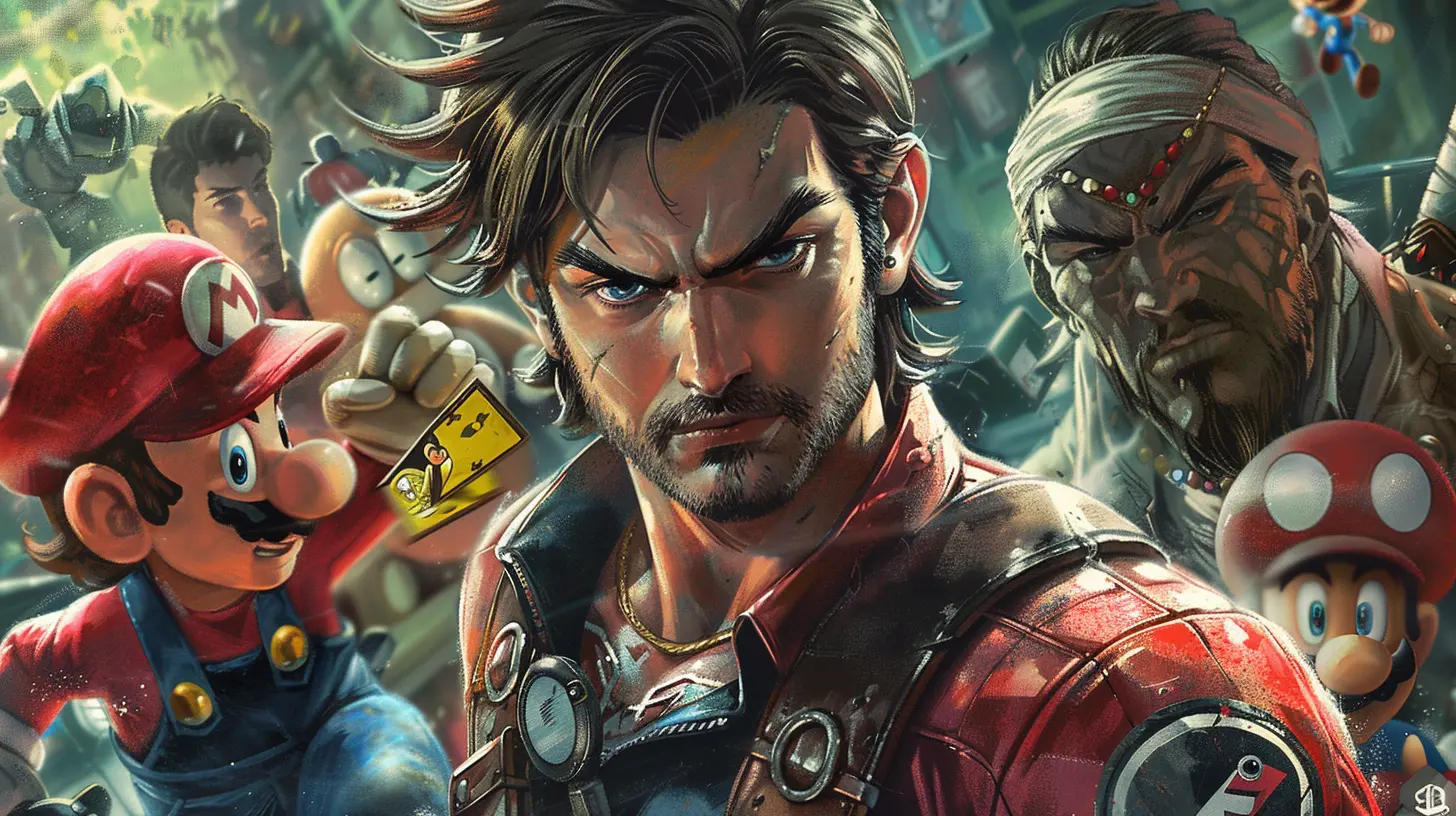
The Shift Toward Inclusion: A New Era in Gaming
When you think about it, gaming has historically had a pretty narrow representation of cultures and backgrounds. For decades, the default protagonist in video games was often a straight, white male. Whether it was the rugged hero-saving-the-world trope or the generic "chosen one" storyline, there wasn’t much room for characters outside this mold.The industry, intentionally or not, catered to a specific demographic, leaving out a huge chunk of people. And let’s face it — we’re all tired of the same old thing, aren’t we? Diversity brings freshness, depth, and relatability to the table, which is exactly why game developers are starting to see the value of moving beyond tired clichés.
But this shift toward inclusion didn’t happen overnight. It’s a result of cultural and social movements, growing awareness, and most importantly — gamers like you and me demanding better representation. Our voices matter, and game studios are finally listening.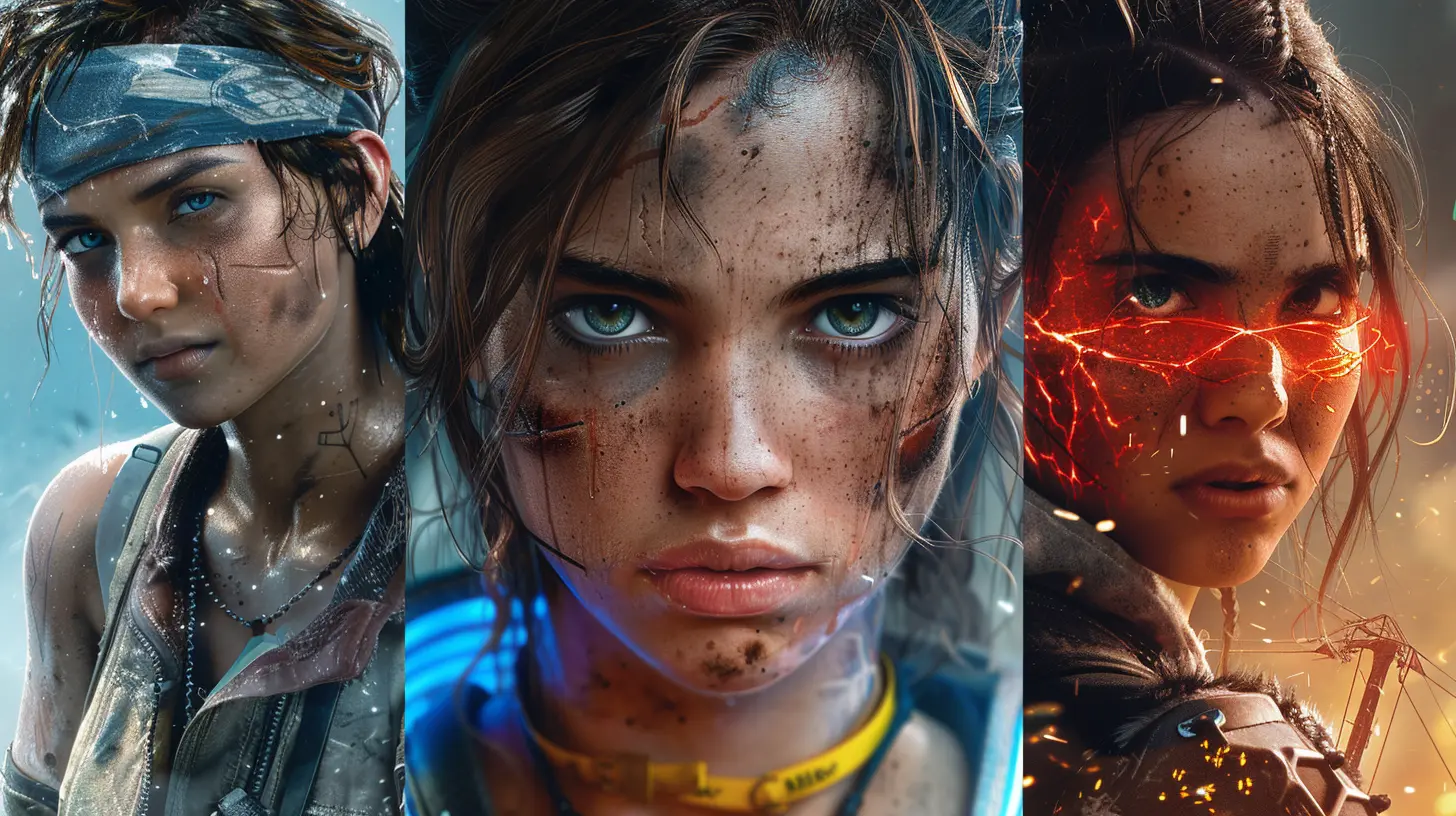
Why Cultural Diversity in Gaming Matters
Okay, so why should we care about cultural diversity in video games? For starters, representation is a big deal. When players see themselves reflected in a game — whether it’s their ethnicity, gender, or even something as specific as their cultural traditions — it creates a powerful connection. It’s like looking in a mirror. You feel seen, valued, and included.On the flip side, when diversity is ignored, it sends an unintentional message that only certain people belong in a given space. No one wants to feel like an outsider, especially in something as immersive and personal as gaming.
Plus, let’s not forget the stories! Cultural diversity opens the door to countless untold narratives. Imagine stepping into the shoes of a Nigerian warrior, exploring Maori mythology, or experiencing life through the eyes of a South Asian protagonist. These kinds of stories add depth, uniqueness, and richness to games, making them more engaging for all players.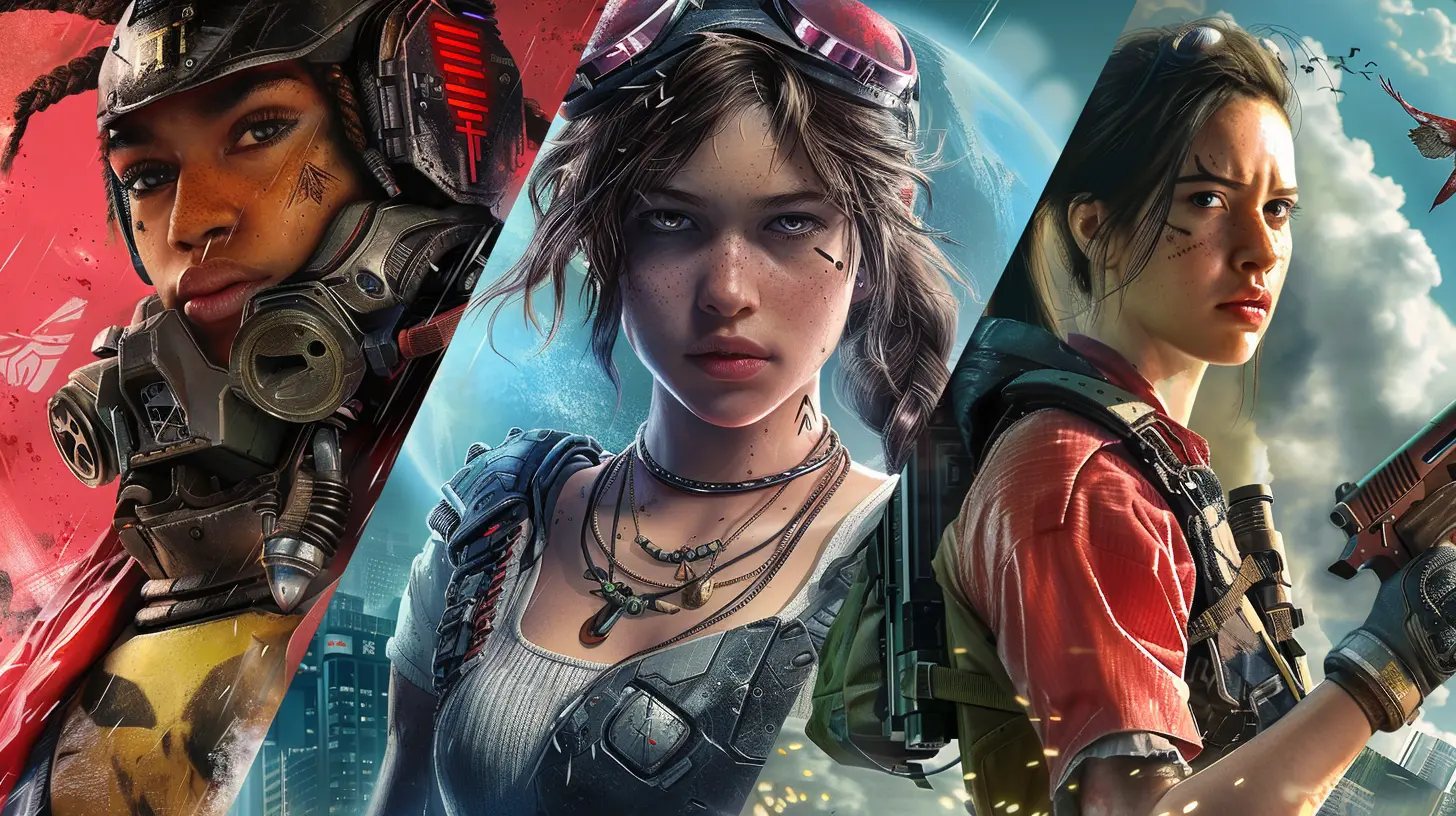
Examples of Diversity Breaking Through in Gaming
To understand how cultural diversity is changing the game (pun intended), let’s look at some standout examples of characters that broke the mold.1. Miles Morales – Spider-Man: Miles Morales
Our friendly neighborhood Spider-Man got a refreshing twist with Miles Morales, a biracial teenager of African American and Puerto Rican descent. Miles brings a unique cultural flavor to the Spider-Man legacy, reflecting the diverse real-world New York City he protects. His story embraces his heritage without reducing it to a stereotype, showing how cultural identity can be seamlessly woven into iconic franchises.2. Aloy – Horizon Zero Dawn
While Aloy herself may not represent a specific cultural background, the rich, diverse world of Horizon Zero Dawn deserves a shoutout. The game’s tribes draw inspiration from multiple cultures, blending distinct traditions and aesthetics to create an inclusive post-apocalyptic society. It’s a subtle yet meaningful nod toward the importance of diversity in world-building.3. Chloe Frazer – Uncharted: The Lost Legacy
Chloe Frazer’s Indian-Australian heritage takes center stage in The Lost Legacy. The game doesn’t shy away from showcasing Indian culture, from the breathtaking landscapes to the mythology that drives the narrative. This added layer of authenticity gives the game a unique identity, proving that culture can infuse a storyline with new life.4. Senua – Hellblade: Senua’s Sacrifice
Cultural diversity isn’t just about ethnicity; it’s also about mental health, gender identity, and lived experiences. Senua represents a Celtic warrior battling psychosis, offering players a raw, emotional glimpse into living with mental health struggles. Games like this encourage empathy and understanding, shedding light on issues often overlooked in mainstream media.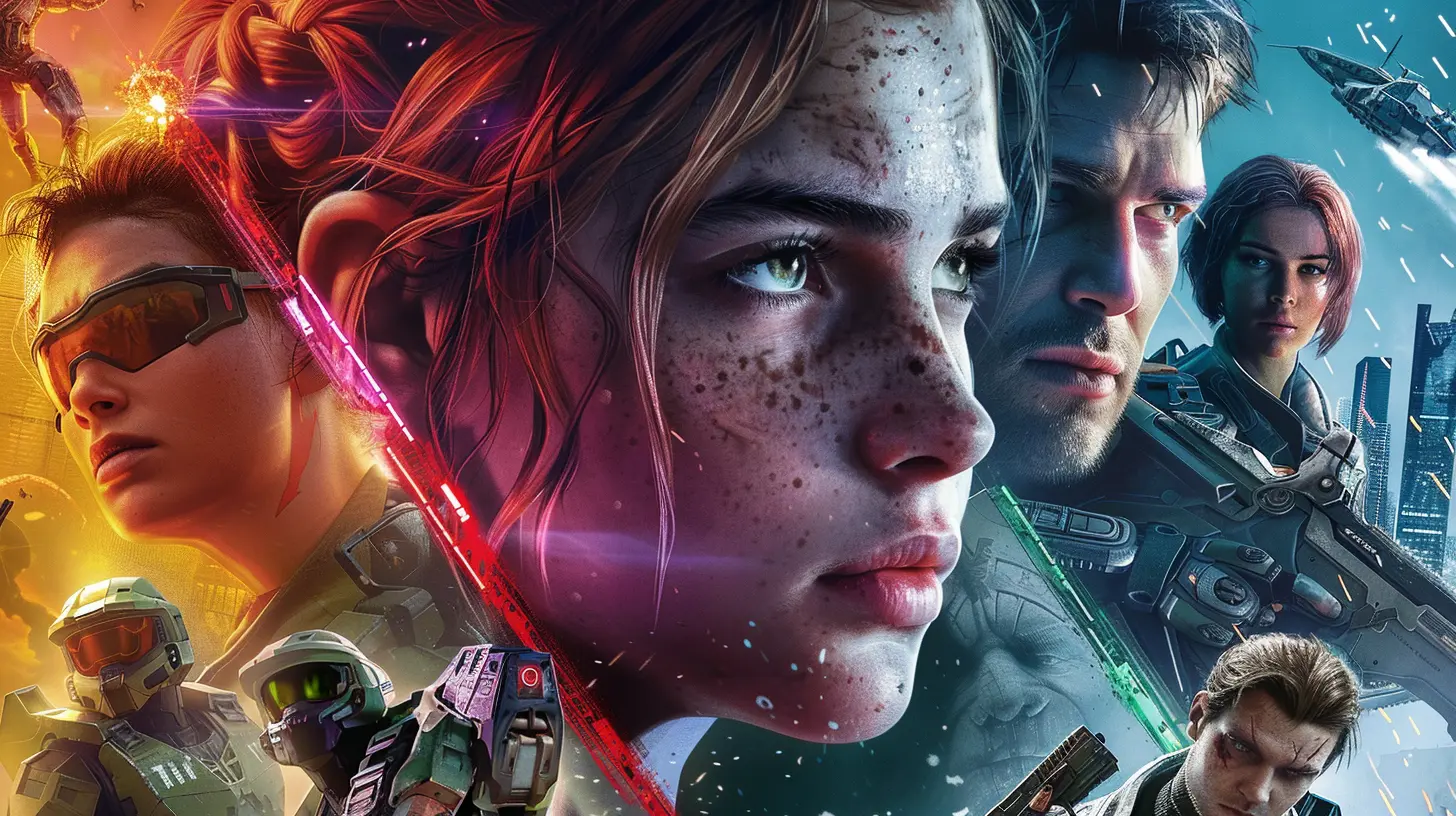
Challenges in Achieving Authentic Representation
Let’s keep it real: while we’re making progress, there are still hurdles to overcome. Not every attempt at diversity hits the mark — and when it’s done poorly, it can be downright cringeworthy. Ever seen a character whose culture felt like a cheap costume rather than an authentic identity? Yeah, me too. That’s what happens when diversity is treated as an afterthought or a marketing gimmick.Authentic representation takes effort. Developers need to dig deep, consulting with cultural experts, hiring diverse creators, and listening to underrepresented voices. It’s not just about throwing in a character of a different race or background. It’s about crafting nuanced, relatable individuals who feel real.
Indie Developers Leading the Charge
While big-name studios are catching on, indie developers have often been the trailblazers of cultural diversity in gaming. With smaller teams and fewer restrictions, indie creators have the freedom to tell unique, personal stories that resonate on a deeper level.Take Never Alone (Kisima Ingitchuna), for example. This indie game draws from the folklore of Alaska’s Iñupiat people, weaving their traditions and oral stories into an unforgettable adventure. It’s an incredible example of how gaming can preserve and celebrate culture.
Another indie gem is Raji: An Ancient Epic, which is rooted in Indian mythology and architecture. Playing as Raji, you navigate a beautifully rendered world inspired by Hindu and Balinese art, battling demons straight out of Indian legends. It’s the perfect blend of culture and creativity.
The Business Case for Diversity
If you’re not sold on the moral and creative arguments for cultural diversity, here’s a hard truth: diversity is good for business. The global gaming audience is massive and incredibly varied. Why limit your reach to just one group when you can appeal to players from all walks of life?According to a 2022 report by the Entertainment Software Association, over 70% of Americans play video games, and the audience is more diverse than ever. By creating inclusive games, companies can connect with a broader audience, foster loyalty, and boost their bottom line. It’s a win-win situation!
What Lies Ahead: The Future of Diversity in Gaming
So, what’s next? As diversity becomes a bigger priority, we’ll likely see even more thoughtful representation in games. From complex female protagonists to characters with disabilities, the possibilities are endless. Studios are also embracing cultural consultants, hiring diverse development teams, and incorporating feedback from underrepresented communities.But at the end of the day, change doesn’t rest solely in the hands of developers. As gamers, we have the power to shape the industry by supporting inclusive games, sharing our voices, and holding companies accountable.
Wrapping It Up
Cultural diversity in video games isn’t just a trend; it’s a necessary evolution. It brings new perspectives, untold stories, and authentic representation to a medium that thrives on creativity and connection. When we embrace diversity, everyone wins — players see themselves reflected, stories gain depth, and the gaming industry becomes richer as a whole.So, the next time you pick up a controller or fire up your PC, take a moment to appreciate how far we’ve come — and imagine how much further we can go. The future of gaming is inclusive, and honestly, I can’t wait to see what’s next.
all images in this post were generated using AI tools
Category:
Video Game CharactersAuthor:

Brianna Reyes
Discussion
rate this article
3 comments
Astranor McClellan
This article beautifully highlights how cultural diversity enriches video game narratives and character development, enhancing player experiences.
June 23, 2025 at 4:00 AM

Brianna Reyes
Thank you! I'm glad you found the article highlights the importance of cultural diversity in enriching narratives and character development in video games. Your feedback is appreciated!
Zephyrae Bass
Imagine if Mario traded his mustache for a kabuki mask! 🎭 Cultural diversity in video games is like adding hot sauce to a classic dish—unexpected, spicy, and utterly delicious. Let’s celebrate these pixelated pals from every corner of the globe!
June 6, 2025 at 3:27 PM

Brianna Reyes
Absolutely! Embracing cultural diversity in video games enriches storytelling and character design, making the gaming experience more vibrant and relatable. Let's keep celebrating these unique influences!
Shannon McGuire
This article highlights a crucial shift in gaming, showcasing how cultural diversity enriches character development and storytelling. It’s refreshing to see representation that resonates with a wider audience, allowing players to connect on deeper levels. As the industry evolves, let’s hope to see even more diverse voices shaping our gaming experiences.
June 6, 2025 at 4:12 AM

Brianna Reyes
Thank you for your kind words! I completely agree—cultural diversity is essential for creating richer narratives and deeper connections in gaming. Let's continue to celebrate and support diverse voices in the industry!
